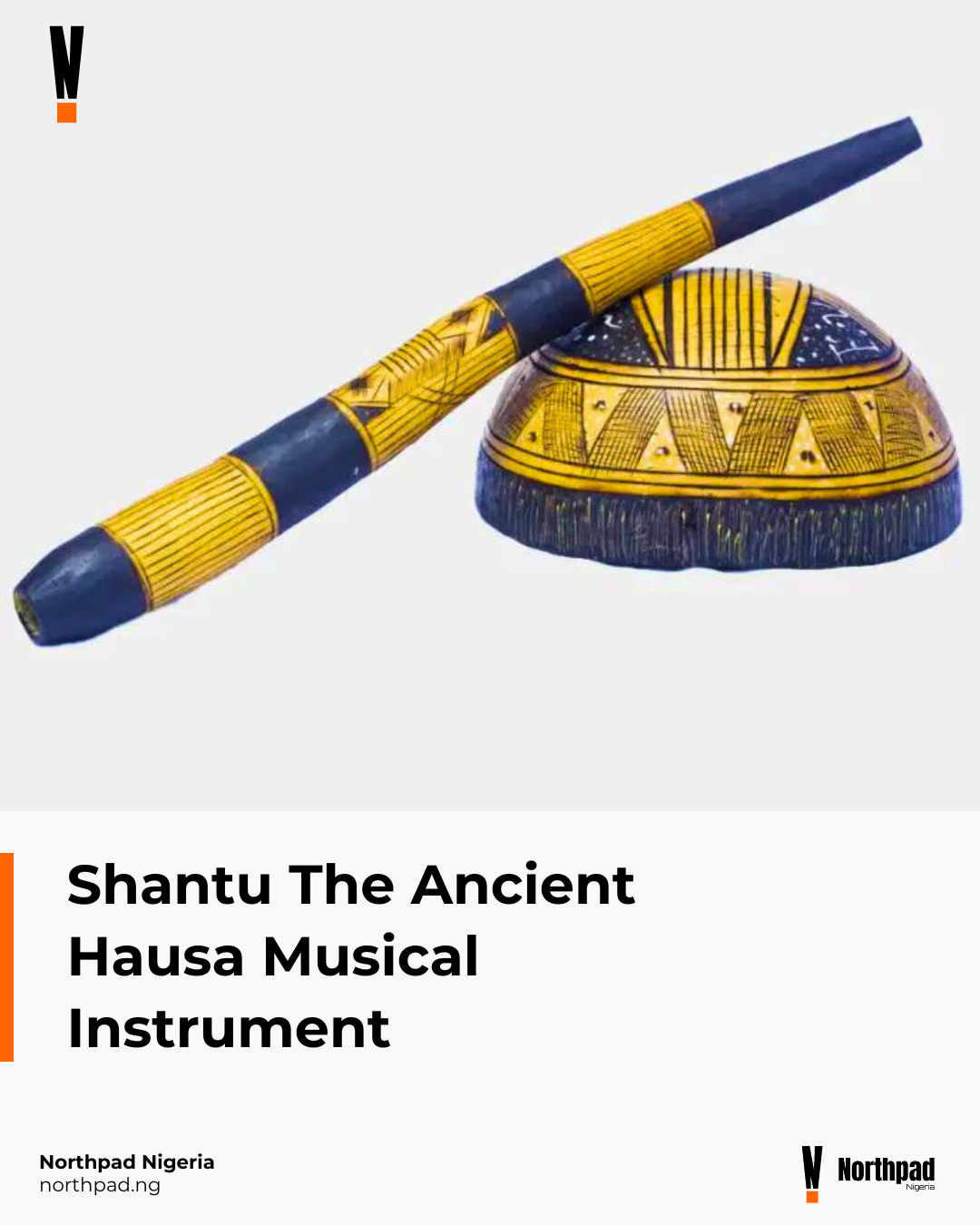The Hausas have been performing Kidan shantu since before they even come into contact with other people, making it an ancient tradition. The connection to people, however, has caused some alterations to the structure and flow of the Kidan shantu. Kidan shantu is mostly sung by women in large gatherings, mostly during weddings, naming ceremonies in Hausaland, or other festivities.
These days. Songs sung by Shantu’s daughters fall into this category. You can hear them singing along with the shantun song every time they blow. Like other music performed by women, shantu music is performed voluntarily. Women perform shantu music because they are driven by passion.
What is Shantu?
The shantu is a musical instrument played on the body using the feet and is created from the leaves of a spreading plant. When Shantu emerges, it spreads like a pumpkin but is tall and lean. They are then dried and utilized as musical instruments after being harvested and split inside by creating doors above and below.
There are two primary categories of shantu:
- Traditional Shantu: This kind of shantu, which is planted, and divided into two doors, is the one that was known to our parents and grandparents. For this one, there are several different designs.
- Modern Shantu: This is a metal shantu modeled by the Farfaru people. This particular shantu makes a distinctive sound when blown.
When is Kidan Shantu Played?
Kidan Shantu is one of the tunes that young ladies play when a bride is about to get married. She is always taken to her husband’s house with her shantu so she can sing for him.
Nowadays, girls also sing shantu songs to pass the time during study breaks in boarding schools. Because they add English words, their music differs from the traditional ones.
Numerous groups continue to perform shantu music nowadays. For instance, the Shantu Association of the Kano State Historical and Arts is a well-known group for its shantu songs and performances in other countries.
Conclusion
While Kidan shantu is an ancient tradition amongst the Hausa people, where ladies gather to sing songs during festive occasions using a traditional instrument, the practice is quickly dying. It will take the combined effort of all involved to revive this dying culture.






![Moderate Kayan Lefe List and Cost for Intending Hausa Couples [Updated]](https://northpad.ng/wp-content/uploads/2024/06/Update-Moderate-Kayan-Lefe-List-and-Cost-for-Intending-Hausa-Couples.png)



0 Comments